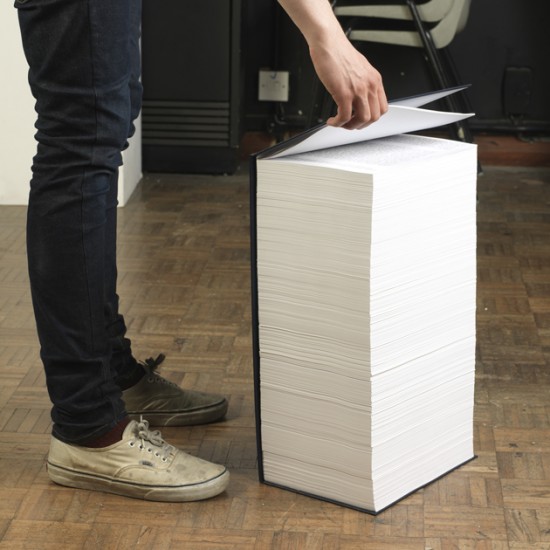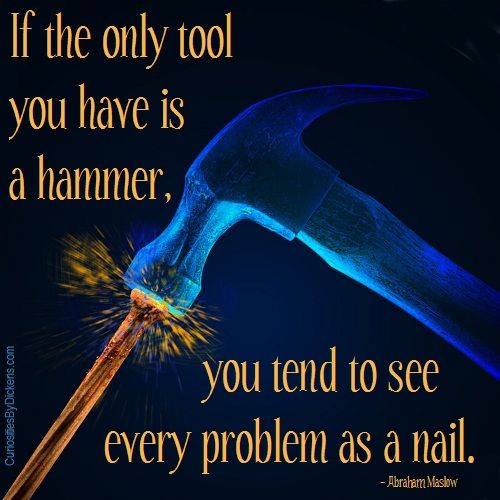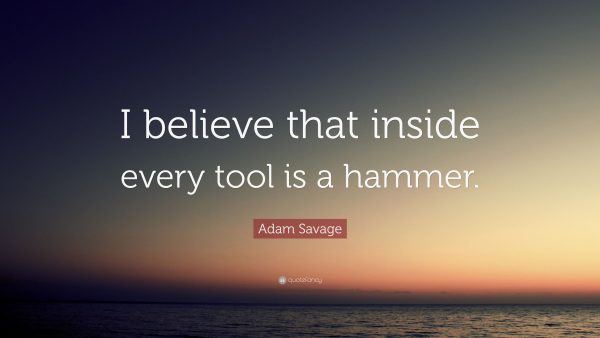I felt inspired to write an article today. I had a narrative in mind. An intriguing tale of war, of data, and of faulty thinking and incorrect analysis. But I didn’t write that article … yet.
Instead I found greater inspiration from a simple question… What tool should I use to write the article?
When the obvious choice isn’t
It seems like a no-brainer. For writing, you use some kind of word processor (like Microsoft Word), right?
If you haven’t worked it out yet (the title of this article should be a helpful clue) my argument is that it in fact isn’t so simple. And before you ask yourself, ‘why’? Instead, ask yourself this. When was the last time you actually created a document in Word?
So, what tools might you use on a typical day?
We write all the time. Whenever you need to capture or communicate something. You do this using a wide variety of tools every day, each one designed with a different purpose or context in mind.
Here was my initial brain dump (a far from exhaustive list)
- SMS, WhatsApp and Facebook Messenger for direct messaging and informal chat (especially GIFs and Memes).
- Facebook, Reddit or Twitter for anti-social media interactions(more GIFs and Memes).
- Outlook and Gmail for emails and more formal correspondence (widely used before we found better ways for sharing GIFs and Memes).
- Microsoft Teams, Skype, Confluence, JIRA, Trello and Slack for team- and task-based collaboration and conversation.
- Pen and paper or Whiteboard or Sharpies and Post its nothing can beat this for capturing ideas in their raw form.
- OneNote much as for the above but with device syncing, the added functionality of a digital stylus, and the ability to share and collaborate.
- PowerPoint if you work this is how you share and present 90% of your key ideas and information.
- XMind for mind mapping, ideas and exploring new topics.
- Excel a surprising entry perhaps, but great for structured and organised notes I can analyse. Because why can’t I treat thoughts like data and mine them for insight if I want to?
- Scrivener for collecting and arranging snippets into a coherent narrative (awesome for longer pieces, dissertations, novels).
- Hemingway Editor for checking my writing or distraction free writing. You can find out more about in in my article A plea for plain English.
- WordPress for blogging and sharing the finished article.
You may also notice, that the common theme may be a tool that lets you write or communicate. The way they do this is very different. They each offer a writing tool tailored to a specific context or nuance.
Have I missed something?
The more observant of you will notice an obvious omission.
You may be asking yourself:
- Why is Microsoft Word not even in the running?
- Why is a one time go to tool for writing now becoming a forgotten relic?
- What purpose does Word serve these days?
What has changed?
I don’t know about you, but when I have something to communicate opening a word processor is low on my list of go to tools. I cut my professional teeth as a document formatter and finisher. I was one with Word and coming out a History degree it was my home, my natural habitat, my safe place.
These days it is a tool I rarely find justification in using.
Walled garden writing
We are in a world of frictionless collaboration and sharing. Boundaries are becoming ill-defined and increasingly transparent.
With this shift, the idea of creating a traditional manuscript as a means to share information feels awkward. What am I meant to do with it when I’m done, post it to someone? Email it? The lack of a distribution method makes it feel archaic.

Living documents get shared early, and iterated
We are in a world where Wikipedia has replaced traditional printed Encyclopedias with a living document of current understanding and discourse. We are far more likely to share work early. To iterate and take in feedback.
Is that the key change? How we publish and share the end result.
Is the issue the limitation of the tool or a change in what we are trying to achieve? We don’t write
So, what tool should I use instead of Word?
Whatever suits your mood or the specific context. Like the title says, any tool can be a hammer.
In photography there is an often used quote by Jay Maisel:

Taking inspiration from this quote. When it comes to writing, your best tool is the one you write with.
- Is it available to me in this moment?
- Can I use it?
- Will I get distracted using it?
- Can it help me quickly share my output?
I mentioned Excel for writing earlier. I recently came across a great example of Excel being as a tool for creativity. Your favourite Weezer song was likely written thanks to Excel. Listen to the episode of Song Exploder to find out more.
A bit about the title?
The title is inspired by two key cultural figures, who I often cite. So rather than claim the tagline as my own I’ll attribute it fairly.

But also to Adam Savage who’s upcoming Autobiography has the title, “Every tool’s a hammer”. Which feels like a more appropriate version of this line. In a pinch any tool will do the job.

Footnote
This article (if you are interested) used the following tools:
- Scribbled notes in a physical notepad.
- Expanded into a narrative in OneNote.
- Formatted, edited and finished in WordPress.
- Checked and revised and made punchier using Hemingway Editor.
Maybe one day I’ll get even more meta than an article about writing tools and write an article about writing articles. Let me know if you enjoyed this article or just want to tell me to stop this inceptioneqsue nonsense before it gets out of control.
